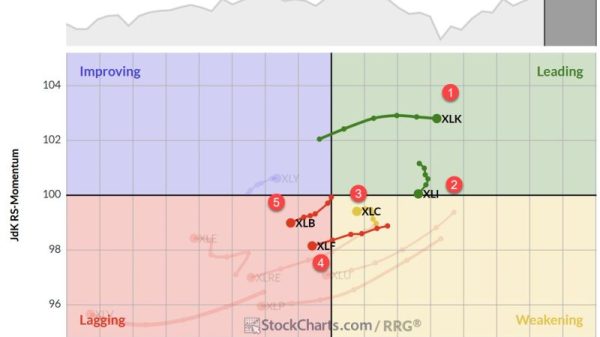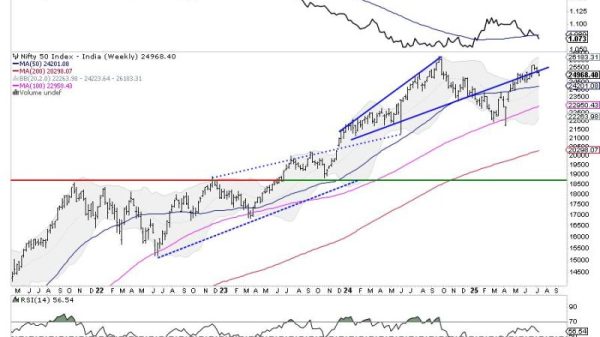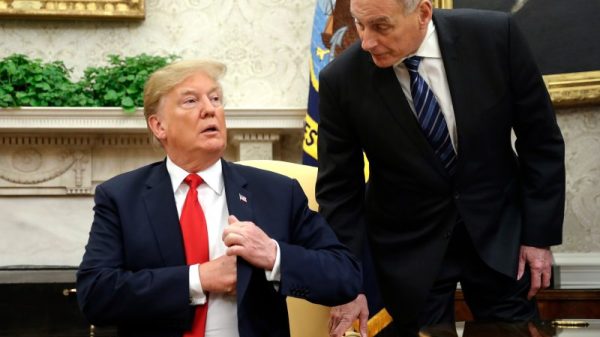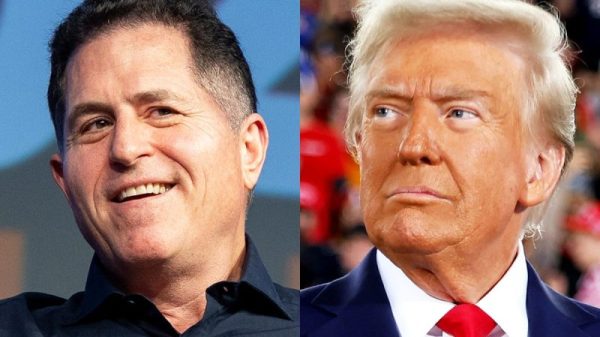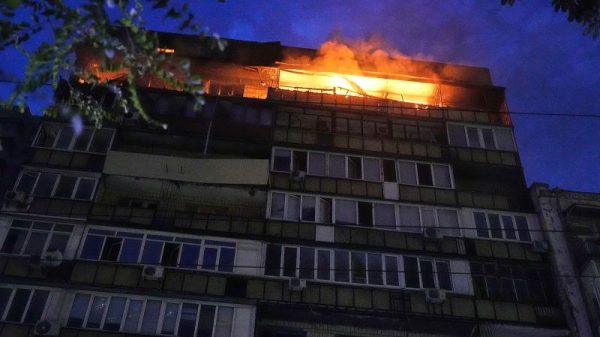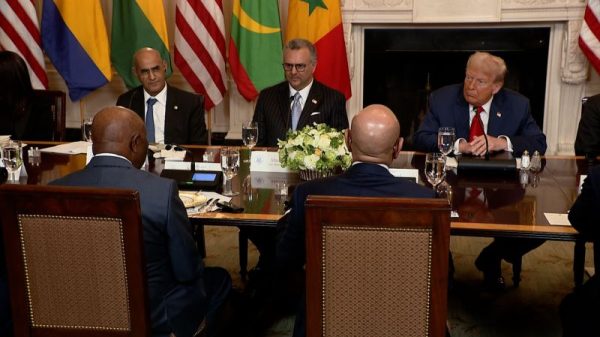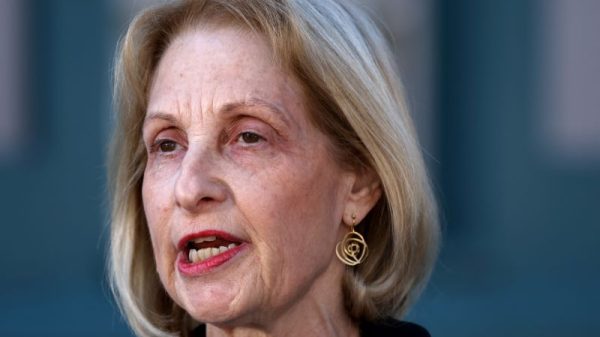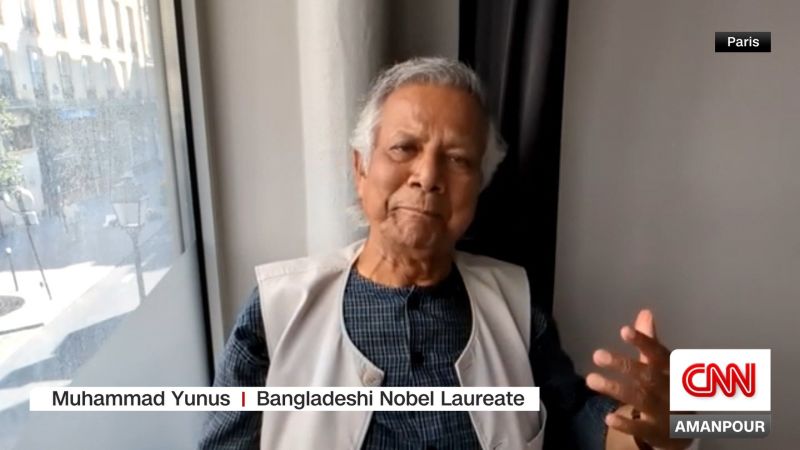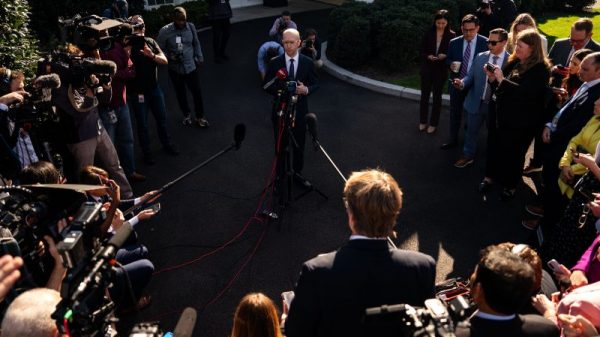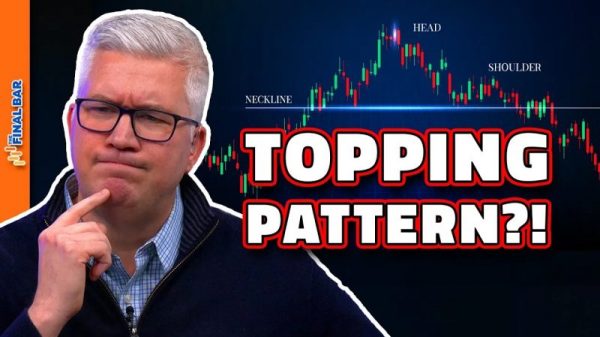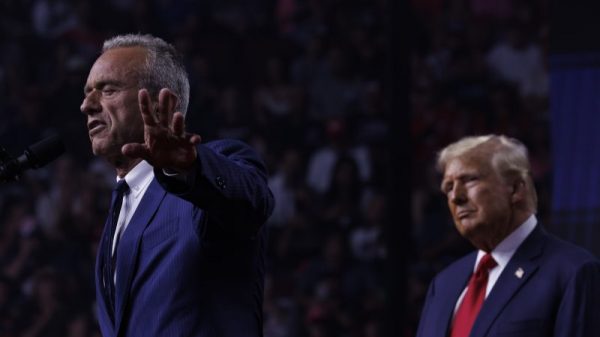A Nobel laureate known as the “banker to the poor” will aim to bring stability to Bangladesh after he answered a call by student protesters for him to temporarily lead the restive country following weeks of deadly anti-government demonstrations.
Muhammad Yunus, 84, will head an interim government following the toppling of the South Asian country’s prime minister and dissolution of parliament, according to the Bangladesh president’s press secretary.
Yunus is a social entrepreneur and banker who won the 2006 Nobel Peace Prize for his pioneering microfinance work that helped alleviate poverty in Bangladesh and was widely adopted around the world.
He is also a longtime critic of former prime minister Sheikh Hasina, who resigned earlier this week and fled the country following years of increasingly authoritarian rule.
Her departure brought jubilation to the student movement that forced her out – but also some trepidation over whether the military would step in to fill the leadership vacuum.
Who is Muhammad Yunus?
Yunus was born in 1940 in Chittagong, a port city in southeastern Bangladesh, according to his profile on the Nobel Prize website.
He studied at Dhaka University, before receiving the prestigious Fulbright scholarship to attend Vanderbilt University in the United States, where he received a Ph.D. in economics.
In 1972, a year after Bangladesh won independence from Pakistan, he returned to teach at Chittagong University.
But disaster soon struck. A severe famine swept the country in 1974, wiping out an estimated 1.5 million people.
“I found it difficult to teach elegant theories of economics in the university classroom, in the backdrop of a terrible famine in Bangladesh. Suddenly, I felt the emptiness of those theories in the face of crushing hunger and poverty,” Yunus said in his 2006 Nobel lecture after receiving the award.
“I wanted to do something immediate to help people around me, even if it was just one human being, to get through another day with a little more ease,” he said.
He began providing small loans out of pocket to the poorest residents in his community – eventually founding the Grameen Bank in 1983, which would become a world leader in alleviating poverty through microlending.
The bank quickly grew, with different branches and similar models now operating worldwide.
Yunus and the Grameen Bank were awarded the Nobel Peace Prize in 2006, after lending a total of about $6 billion in housing, student and micro-enterprise loans, and specifically in support of Bangladeshi women.
He is also the founder of the Yunus Centre, a Dhaka-based think tank that helps develop new social businesses.
Some critics have cast a skeptical eye on Yunus and the Grameen Bank, arguing that some microlenders’ high interest rates had impoverished borrowers as the lenders made big profits from small loans.
Frictions with Hasina’s government
Over the years, Yunus has repeatedly gone head-to-head with former prime minister Hasina – who has accused him of “sucking blood from the poor,” according to Reuters.
Yunus briefly proposed forming a new political party in 2007 ahead of parliamentary elections – which Hasina decried at the time, saying political newcomers were “dangerous elements … to be viewed with suspicion,” Reuters reported.
Yunus ultimately did not move forward with forming the party.
In 2011, Bangladesh’s government-controlled central bank removed Yunus as managing director of Grameen Bank, saying he had exceeded the mandatory retirement age.
In the following years, Yunus was embroiled in multiple legal cases that his supporters said were the result of him being unfairly targeted by the authorities.
They include a defamation suit, a food safety case, and allegations of tax irregularities, which he denied.
In January, a court in Bangladesh sentenced Yunus to six months in prison for labor law violations – with the banker again denying any wrongdoing.
In a separate case, he was indicted in June on embezzlement charges.
Hasina’s government had insisted its actions against Yunus were not politically motivated, but the banker disagreed. It is not currently clear what will happen to those prosecutions now Hasina is out of power.
“I am not in the political field, there is no evidence that I am involved in politics,” Yunus said at the time, warning that Bangladesh was becoming a “self-destructing civilization.”
In a separate interview with Reuters in June, he said Bangladesh had turned into a “one-party” state, with the ruling party stamping out all political competition.
What comes next?
“People are celebrating on the street and millions and millions of people all over Bangladesh [are] celebrating as if this is our liberation day,” he said.
Addressing his message to the protest movement in Bangladesh, he added: “You have done a great job.”
But, experts say, Yunus faces a long and complicated road ahead as the government reforms itself.
His first challenge will be to re-establish law and order after the deadly protests of the past weeks, and to “address the trust deficit that exists in society” between the people and the state, said Mubashar Hasan, who studies Asian authoritarianism at the University of Oslo.
That includes deep public mistrust toward Bangladesh’s police, judiciary, and other state-run institutes, he said.
Another pressing task will be to declare free and fair elections – the lack of which is one reason Bangladesh was plunged into protests in the first place.
Yunus will also have to address the fallout from the past month, with Hasina’s government having cracked down with deadly force on the protesters with around 300 killed according to local media and agencies. Critics and human rights groups have accused authorities of using excessive violence, a charge the government denied at the time.
Now, the interim leader will likely face pressure to “start setting up some sort of judicial procedures that will address the gross human rights violation in the past few weeks and in the past decade,” Hasan said.
Niloy Biswas, a professor of international relations at the University of Dhaka, echoed this point – saying the government’s new leaders must “initiate investigations to ensure justice for hundreds of innocent people who have lost their lives.”
As the interim government moves forward, reforming Bangladesh’s economy will be a key task – where Yunus’ economic background could play a role. These reforms will be “vital” in combating corruption and helping the nation grow, Biswas said.
But he may face opposition in government, too – including from those who had supported Hasina, potentially including figures in the judiciary and law enforcement, Hasan said.







